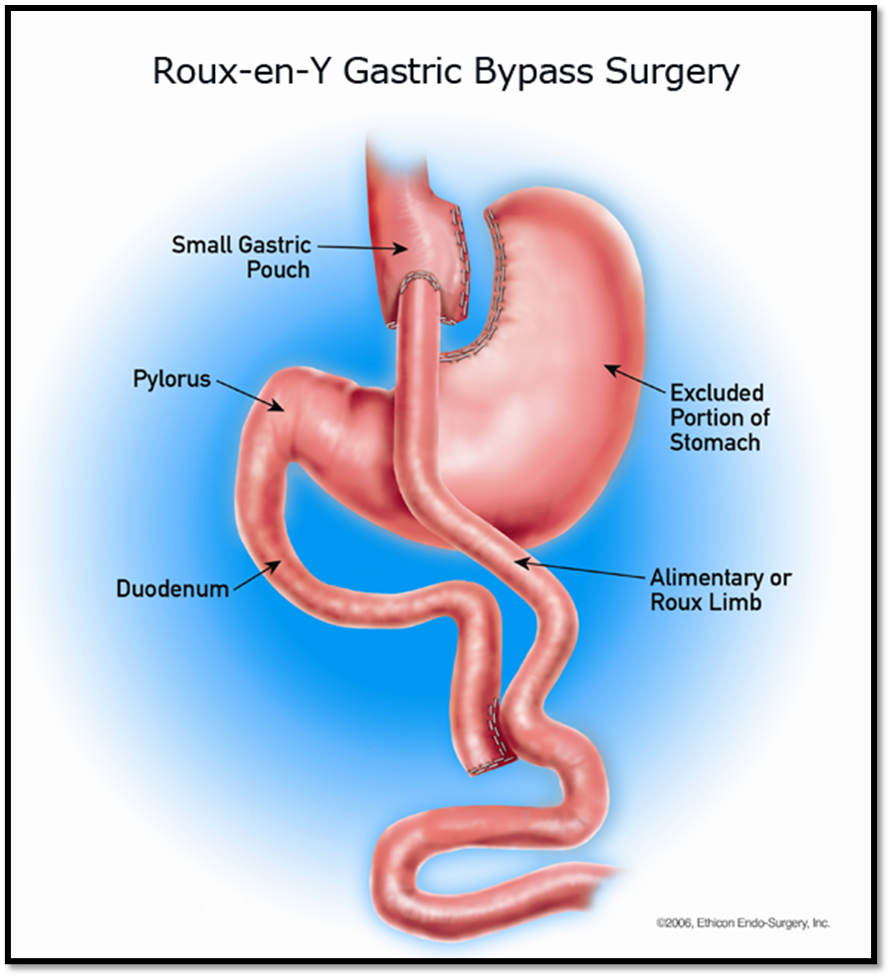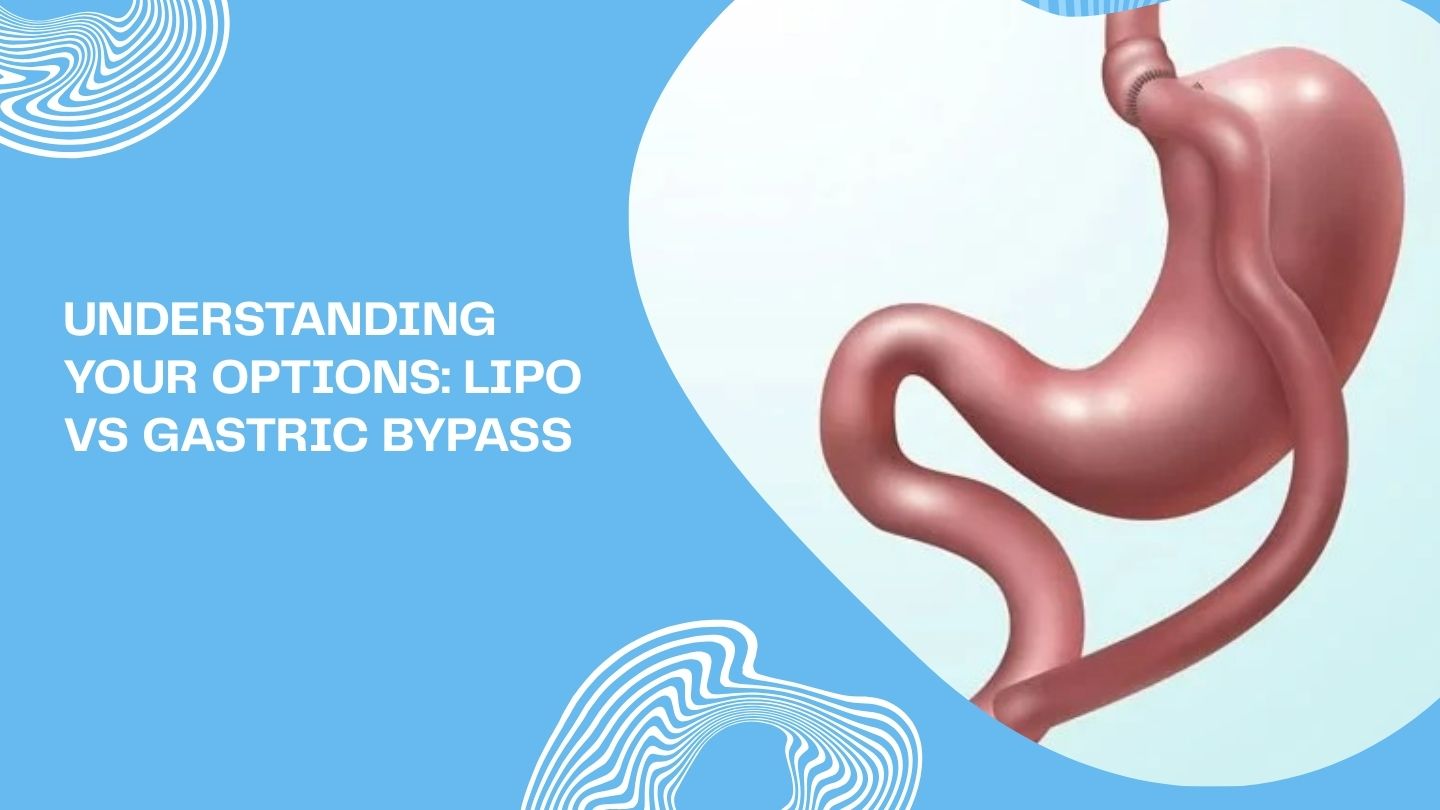WHAT IS GASTRIC BYPASS SURGERY?
Explore how our doctors can help you address your health concerns efficiently.
Gastric bypass surgery
Gastric bypass surgery in Cobb County provides an effective, long-term solution for individuals struggling with severe obesity and related health conditions. Specifically, the Roux-en-Y procedure is a widely performed form of gastric bypass that modifies the digestive system to support significant weight loss. By reducing stomach size and rerouting part of the small intestine, this surgery helps limit food intake and decrease calorie absorption, empowering patients to achieve better health outcomes.
Meet Your Surgeons

Dr. Jean-Pierre
After his general surgery training in Chicago, Dr. JP began his fellowship with a concentration in bariatrics at the Morehouse School of Medicine through Atlanta Medical Center. He is a fellow of the American College of Surgeons and the American Society of Metabolic and Bariatric Surgeons.

Dr. Menachery
Dr. Menachery is board certified by the American Board of General Surgery. He is a member of the American College of Surgeons, the Society of American Gastrointestinal Endoscopic Surgeons, and the American Society of Metabolic & Bariatric Surgeons.

Dr. Hall
Dr. Hall is board certified by the American Board of General Surgery that specializes in both Bariatric and General Surgery. She received her education and training for Emory University.

Dr. Major
Dr. Major is board certified by the American Board of General Surgery. He is also a member of the American College of Surgeons and the Southeastern Surgical Congress.

Dr. Renee
Hilton
Dr. Hilton is Fellow of the American Society for Metabolic and Bariatric Surgery. She is board certified by the American Board of General Surgery and specializes in bariatric and foregut surgery. She completed a fellowship in Bariatric and Minimally Invasive Surgery at Yale University.

Dr. Aaron Bolduc
Dr. Bolduc is board certified by the American Board of General Surgery and specializes in bariatric, foregut and adrenal surgery. He completed a fellowship in Bariatric and Minimally Invasive Surgery at Vanderbilt University.

Dr. Jaine McKenzie
Dr. McKenzie is board certified by the American Board of General Surgery and specializes in bariatric and foregut surgery. She completed a fellowship in Bariatric and Minimally Invasive Surgery at Vanderbilt University.
How It Works
Procedure:
- Stomach Reduction: The surgeon creates a small pouch at the top of the stomach using surgical staples. This pouch is about the size of a walnut and can hold only about an ounce of food.
- Bypassing the Small Intestine: The small pouch is then connected directly to the middle part of the small intestine (the jejunum), bypassing the rest of the stomach and the upper part of the small intestine (the duodenum). This reduces the amount of food you can eat and the number of calories and nutrients your body absorbs.
- Average time for surgery: The average time for a gastric bypass surgery, specifically the Roux-en-Y procedure, typically ranges from two to four hours. This duration can vary depending on the complexity of the case and the surgeon’s experience.

Recovery
- Most patients stay in the hospital for 1 days after the surgery.
- Full recovery usually takes about 4-6 weeks, during which patients gradually transition from a liquid diet to solid foods using the post operatively dietary guidelines.
Potential Complications:
- Nutritional Deficiencies: Because the surgery limits the absorption of nutrients, patients may experience deficiencies in vitamins and minerals such as iron, calcium, vitamin B12, and others.
- Dumping Syndrome: This occurs when food moves too quickly from the stomach to the small intestine, causing symptoms like nausea, vomiting, diarrhea, dizziness, and sweating. It can be managed with dietary changes.
- Stomal Stenosis: This is the narrowing of the opening between the stomach and small intestine, which can cause vomiting and difficulty eating. It may require medical intervention.
- Peritonitis: A rare serious complication where a leak from the stomach can cause an infection in the abdominal cavity. Symptoms include fever, severe abdominal pain, and rapid heart rate.
- Weight Regain: Over time, some patients may regain weight if they do not adhere to dietary guidelines and lifestyle changes.
Long-term Considerations
Patients who undergo gastric bypass surgery typically lose about 60% to 75% of their excess body weight within the first two to three years. This weight loss is generally sustained over time if patients adhere to recommended dietary and lifestyle changes.
EX. For example, if a patient has 100 pounds of excess weight, they can expect to lose approximately 60 to 75 pounds within this period.
Gastric bypass surgery can be highly effective for weight loss, but it’s important to be aware of these potential risks and work closely with healthcare providers to manage them. If you have any specific concerns or need more detailed information, consulting with a bariatric surgeon or a healthcare professional is always a good idea.
Contact UsFAQs About Gastric Bypass Surgery

Benefits of Gastric Bypass Surgery
Unlike other forms of bariatric surgery, gastric bypass forms a gastric pouch, which helps control the amount of food the stomach holds, and the number of calories absorbed. Unlike other weight loss surgery methods, gastric bypass also changes the patient's gut hormones. By correcting the patient's gut hormones, the patient can feel fuller and more satiated for longer periods of time. This also helps suppress appetite and can correct chronic obesity.
Gastric bypass surgery can indeed change lives and solve different problems for those living with severe obesity. Reducing the size of your stomach and re-routing the small intestine leads to fewer calories being ingested, feeling full after a meal, and providing significant weight loss over time. This improves general health and minimizes risk factors for chronic conditions like heart disease, diabetes, or hypertension. Wellstar provides customized gastric bypass surgery to meet the personalized needs of individuals desiring more control over their health.
Additional advantages of undergoing gastric bypass surgery near Cobb County, Marietta, Smyrna, Austell, LaGrange, Augusta and West GA encompass significant weight loss, enhanced mental health, improved mobility, and an increase in energy levels. This surgical operation enhances the individual’s health status in the long run by reducing the predisposition to chronic conditions such as hypertension and obstructive sleep apnea. Patients experience improved quality of life, are more confident, and maintain healthy lifestyles after this surgical intervention.
Why Choose Wellstar for Gastric Bypass Surgery?
At Wellstar, we are aware of the importance of choosing the right gastric bypass surgeon. Our surgical team strives to ensure that all patients are given appropriate, personalized care so they feel cared for and supported during each step. We treat you like family with compassion and professionalism in all our services, from consultation to follow-up, so that your expectations for weight loss can be achieved. Our state-of-the-art facilities and minimally invasive techniques make recovery smoother, allowing you to get back to a healthier lifestyle with reduced risks for any complications.
Wellstar is not just an option for surgery but a lifelong partner for your well-being. Our gastric bypass surgeons work with nutritionists, physical therapists, and support staff to ensure you have the necessary resources for long-lasting success. We also offer extensive pre- and postoperative education so that you will be well-prepared and confident throughout. No one performs gastric bypass surgery better than Wellstar. We promise to prioritize your safety and comfort. Our services are also available near Cobb, Austell, Smyrna, Marietta, Augusta and West GA. We ensure you stay well-informed every step of the way, from the initial examinations and surgery to recovery and follow-up care.

Patient Success Stories
START YOUR TRANSFORMATION TODAY!
Start your journey to lasting weight loss today! Book a Consultation to learn about Gastric Bypass Surgery and how we can support your goals.
Contact UsOur program makes sure you are successful
-

Nutrition and Exercise Support
-

Pre and Post Surgical Support
BMI Calculator
Federal Guidelines for Healthy Weight
- Underweight. Your BMI is less than 18.5.
- Ideal Weight for Your Height. Your BMI is between 18.5 and 24.9.
- Overweight. Your BMI is between 25 and 29.9.
- Obese. Your BMI is 30 or greater.
Blogs

Understanding Your Options: Lipo vs Gastric Bypass
Body contouring and weight loss procedures are often discussed together, but they serve very differ
Read More
Ways to Stop Nausea After Gastric Sleeve
If you’re experiencing nausea after your gastric sleeve procedure, you’re not alone—and there
Read More
How to Choose the Right Hiatal Hernia Surgeon in Marietta
Living with a hiatal hernia can affect more than just your digestion — it can influence your comf
Read More






